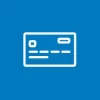Credit cards are the second most popular means of payment in Switzerland – after cash – as per a survey conducted by moneyland.ch in 2017. More than 40% of residents own two or more credit cards. But many Swiss credit cards users do not fully understand the costs associated with using their credit cards.
Notable differences in fees and charges
Every year, moneyland.ch analyzes the more than 150 Swiss credit cards included in its credit card comparison. The results of this year’s analysis show that differences in the costs and benefits offered remain significant in 2017. An occasional credit card user (occasional payments in Switzerland and abroad with no cash advances), the difference in the total costs between the cheapest and the most expensive cards during the first two years is almost 500 Swiss francs (excluding platinum cards). The difference increases to 700 francs during the first two years for cardholders who use their cards regularly – or close to 1700 francs if platinum cards are included.
Hikes in fees
Swiss credit card issuers have implemented a series of hikes in fees and charges. These include higher fees for foreign transactions in Swiss francs, foreign currency transactions, cash advances and paper statements. Issuers justify the higher fees with the lowering of the maximum interest rate to 12% stipulated in Swiss consumer credit laws and the lowering of merchant fees. moneyland.ch expects the trend towards higher fees and charges to continue.
Significant differences in benefits
Costs are not the only are in which cards differ. Benefits also vary significantly between cards. Typically, the more benefits a card offers, the higher the card fees are. In some cases the benefits offered justify the fees charged. However, benefits only pay for themselves if cardholders actually need and use them. In order to help consumers find credit cards which match their needs, moneyland.ch compares and rates 18 different card benefits including reward points, frequent flyer miles, airport lounge access, travel insurance, price protection and concierge services and includes ratings in its credit card comparison.
The most affordable credit cards compared
The Coop Supercardplus is the most affordable credit card for occasional card users in 2017, with an average cost of 43.20 Swiss francs during the first two years. Next in line is the Migros Cumulus Mastercard from Cembra Money Bank (53.95 francs). Both the Coop Supercardplus and the Migros Cumulus Mastercard have no annual card fee and – if used only for direct purchases in Switzerland with no cash advances – are free of charge.
The cost difference between the two “free” credit cards results from the somewhat higher foreign currency exchange rate used by the Migros Cumulus Mastercard. However, rates can change from one day to the next.
The most cost-effective credit card for frequent users in 2017 is the TCS Mastercard Gold (Cembra Money Bank) which works out cheapest thanks to the cash back it delivers – with an average cost of 451.40 francs over 2 years. It is followed by the Coop Supercardplus (457.25 francs), the PostFinance Gold and Standard credit cards and the Migros Cumulus Mastercard. The Coop Supercardplus has the lowest costs for use outside of Switzerland (461.45 Swiss francs for 2 years), followed by the Cornèrcard Energy (512.75 francs), the PostFinance Standard (515.45 francs) and the Migros Cumulus (526.10 francs).
Prepaid cards: the costs compared
As a general rule, credit cards work out somewhat cheaper than prepaid cards for almost every user profile. Those who prefer to use prepaid cards should get informed about fees and charges before applying. In the case of occasional users, the costs of the most expensive prepaid card are almost double those of the cheapest prepaid card (currently the Energy Prepaid Card from Cornèrcard).
Using payment cards with Apple Pay and Samsung Pay
Apple Pay and Samsung Pay can now be used in Switzerland. Users must have a prepaid card or credit card issued by an Apple or Samsung partner. These issuers include Bonuscard (Apple Pay and Samsung Pay), Cornèrcard (Apple Pay and Samsung Pay), Swiss Bankers (Apple Pay and Samsung Pay) and Swisscard (Apple Pay). Standard credit card fees apply when you charge purchases to your card through Apple Pay or Samsung Pay. While users do not pay fees for purchases in Switzerland, foreign transaction fees applicable to the card in use are charged for purchases made outside of Switzerland. The exchange rate spread adds another cost on top of foreign transaction fees. You can use the “Apple Pay” and “Samsung Pay” filters in the moneyland.ch credit card comparison to limit results to cards which can be used with Apple Pay or Samsung Pay.
Beware of high fees while traveling
International travel poses an array of cost pitfalls to credit card users. The first general rule: Card users should avoid using their credit cards to withdraw money. Using a debit card (Maestro, V-Pay, Postfinance) is a more affordable way to get money at automated teller machines (ATMs).
Secondly, Swiss credit card users making payments abroad should avoid using dynamic currency conversion for transactions. Instead, payments should be made in the local currency. Avoiding dynamic currency conversion has become more important in recent years because a majority of Swiss banks have begun charging foreign transaction fees for foreign purchases paid for in Swiss francs.
The third general rule for those making purchases outside of Switzerland is that credit cards are best suited to paying for small purchases (between 100 and 200 francs), while debit cards are a better payment option for larger purchases.
More on this topic:
Credit card and prepaid card comparison
Credit card guides
Credit card use in Switzerland compared

 Deal of the Day
Deal of the Day 








